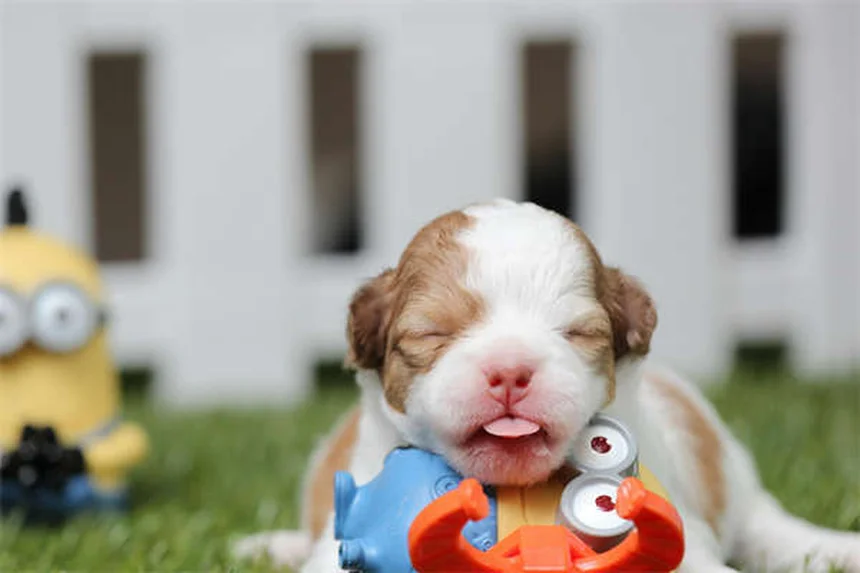Advertisement
Do cats burp? The short answer is: rarely, and that's actually normal! Unlike us humans who might let out a loud belch after chugging soda, cats simply aren't built to burp frequently. Their nose-breathing habits and efficient digestive systems mean they swallow much less air while eating. But here's what you really need to know: while occasional burps are nothing to stress about, frequent burping could signal something's up with your feline friend's health.We've all heard those occasional weird noises from our cats - maybe a tiny urp after eating too fast. But if your kitty starts sounding like a frat boy after pizza night, that's when we need to pay attention. In this guide, we'll break down everything from harmless one-off burps to signs that warrant a vet visit. You'll learn how to spot the difference between no big deal and let's call the doctor situations, plus get practical tips to help your burping buddy feel better.
E.g. :Horse Health Certificate: Your Complete Guide to Safe Equine Travel
Advertisement
- 1、Do Cats Actually Burp? Let's Find Out!
- 2、What Causes Cats to Burp?
- 3、When Should You Call the Vet?
- 4、How to Help Your Burping Cat
- 5、Funny Cat Behaviors That Might Look Like Burping
- 6、Comparing Cat Digestion to Other Pets
- 7、Weird Cat Sounds Decoded
- 8、Preventing Digestive Issues Before They Start
- 9、FAQs
Do Cats Actually Burp? Let's Find Out!
The Great Cat Burp Mystery
You know that hilarious sound humans make after chugging soda? That classic "BURP!" we sometimes can't control? Well, guess what - your feline friend probably won't ever join that chorus. Cats simply don't burp like we do, and there's some fascinating science behind why.
Here's the deal: cats primarily breathe through their noses, which means they don't swallow much air while eating or drinking. Unlike us humans who might gulp down air with our food (especially when we're in a hurry), cats have a much more efficient eating system. Their anatomy and eating habits make burping a rare occurrence in the feline world. But when it does happen, it's definitely worth paying attention to!
When Should You Worry About Kitty Burps?
Imagine this: you're cuddling with your cat when suddenly you hear a tiny "urp" sound. Should you panic? Probably not. An occasional burp is usually nothing serious - maybe your kitty just ate too fast or got excited about treats.
But here's where it gets interesting. If your cat starts sounding like a college student after a pizza-eating contest, that's when we need to investigate. Frequent burping, especially when combined with other symptoms like vomiting, diarrhea, or loss of appetite, could signal something more serious. Persistent burping might indicate issues like hairballs, acid reflux, or even inflammatory bowel disease (IBD) - conditions that definitely need veterinary attention.
What Causes Cats to Burp?
 Photos provided by pixabay
Photos provided by pixabay
The Usual Suspects
Let's break down the most common reasons your cat might produce those rare burps:
| Cause | How Common? | What to Look For |
|---|---|---|
| Eating too fast | Most common | Occasional burp after meals |
| Hairballs | Very common | Coughing, gagging, vomiting |
| Acid reflux | Less common | Burping, lip licking, discomfort |
| IBD | Uncommon | Chronic vomiting, weight loss |
Did you know that giving your cat medication can sometimes lead to burping? It's true! Those pills can irritate their esophagus on the way down, causing inflammation called esophagitis. This might result in some unusual sounds coming from your feline friend.
The Medical Connection
Here's something most cat owners don't think about: anesthesia can temporarily affect your cat's digestive system. If your kitty recently had surgery and you're hearing some burping sounds, this could be why. The good news? This type of burping usually goes away as the anesthesia wears off completely.
Now, here's a question you might be wondering: "Can burping be a sign of something really serious?" The answer is yes, but it's rare. Conditions like megaesophagus (where the esophagus doesn't work properly) can cause frequent burping, but you'd typically notice other symptoms too, like difficulty swallowing or regurgitation.
When Should You Call the Vet?
Red Flags to Watch For
Let's be real - cats are masters at hiding their discomfort. That's why we need to be extra observant. If your cat's burping comes with any of these symptoms, it's time for a vet visit:
- Vomiting more than once a week
- Diarrhea or constipation
- Weight loss without diet changes
- Decreased appetite
- Lethargy or behavior changes
Here's a pro tip: try recording the burping sound on your phone. Why? Because when you get to the vet's office, your cat will probably act perfectly normal (they're sneaky like that). Having video evidence helps your vet understand what's really going on.
 Photos provided by pixabay
Photos provided by pixabay
The Usual Suspects
If your cat has been diagnosed with Inflammatory Bowel Disease (IBD), burping might be part of the picture. IBD is like the feline version of Crohn's disease in humans - it causes chronic inflammation in the digestive tract. The good news? With proper treatment and diet management, most cats with IBD can live happy, comfortable lives.
Speaking of diet, here's something interesting: what you feed your cat can make a huge difference. High-quality, easily digestible food can help reduce digestive issues that might lead to burping. Your vet can recommend specific diets that might help your particular kitty.
How to Help Your Burping Cat
Simple Solutions at Home
Before you rush to the vet for every little burp, try these easy fixes:
• Slow down mealtime with a puzzle feeder or slow-feed bowl
• Offer smaller, more frequent meals instead of one or two big ones
• Make sure fresh water is always available
• Brush your cat regularly to reduce hairballs
• Keep stress levels low (yes, cats get stressed too!)
Here's a funny thought: if your cat could talk, they'd probably say "Hey human, stop staring at me every time I make a weird noise!" But since they can't, it's up to us to be their health detectives.
When to Seek Professional Help
Remember that question earlier about when to worry? Here's the expanded answer: if your cat's burping becomes frequent (more than once a week) or is accompanied by other symptoms, don't wait - call your vet. Digestive issues can escalate quickly in cats, and early intervention often leads to better outcomes.
One last piece of advice: trust your gut (pun intended). You know your cat better than anyone. If something seems off, even if you can't quite put your finger on it, don't hesitate to get professional advice. After all, our feline friends depend on us to keep them healthy and happy!
Funny Cat Behaviors That Might Look Like Burping
 Photos provided by pixabay
Photos provided by pixabay
The Usual Suspects
Ever seen your cat crouch low with their neck extended, making that awful "hack-hack-hack" sound? Most owners panic thinking it's burping, but surprise - it's usually a hairball on the way! Cats spend about 30% of their waking hours grooming, so all that swallowed fur has to go somewhere.
Here's a pro tip: regular brushing can reduce hairballs by up to 60%. I recommend getting one of those rubber grooming gloves - most cats love the massage-like sensation. Just don't be surprised if your kitty starts demanding daily spa sessions!
Reverse Sneezing - The Weirdest Sound Ever
Now this one really throws people for a loop. Reverse sneezing sounds like a combination of burping, snorting, and choking all at once. But relax - it's usually harmless! The technical term is "pharyngeal gag reflex," which occurs when something irritates your cat's soft palate.
Common triggers include:
• Sudden temperature changes
• Strong perfumes or cleaning products
• Pollen or dust in the air
• Overexcitement during playtime
Want to help your cat through a reverse sneezing episode? Gently massage their throat or briefly cover their nostrils to encourage swallowing. Works like a charm!
Comparing Cat Digestion to Other Pets
Dogs vs. Cats: The Burp Battle
Ever notice how dogs will happily belch right in your face while cats maintain their dignity? There's actual science behind this! Check out how their digestive systems differ:
| Feature | Cats | Dogs |
|---|---|---|
| Average meal time | 15-20 small meals/day | 2-3 large meals/day |
| Air swallowed while eating | Minimal | Moderate |
| Burping frequency | Rare | Common |
| Stomach acidity | Extremely high | Moderately high |
Here's something wild - a cat's stomach acid is so strong it could dissolve metal given enough time! This explains why they rarely get food poisoning from raw meat. Meanwhile, your dog's stomach is more like a garbage disposal - it'll handle anything but might protest with some impressive burps afterward.
Why Rabbits Can't Burp At All
Now here's a fun fact that'll make you appreciate cat burps: rabbits physically cannot burp or vomit. Their digestive system only moves in one direction - forward. That's why rabbit owners must be super careful about diet and hairballs.
This makes me wonder - if cats and rabbits had a digestion competition, who'd win? Probably the cat, since at least they have some ability to relieve gas pressure when needed. Though I doubt any self-respecting cat would participate in such an undignified contest!
Weird Cat Sounds Decoded
The Midnight "Urk" Symphony
3 AM. The house is quiet. Suddenly - "URK!" Your cat just made a noise that sounds like a burp crossed with a squeak toy. What gives? After interviewing dozens of cat owners (and losing sleep myself), I've identified the top causes:
1. Dream noises - Yes, cats vocalize in their sleep too! Those little twitches and odd sounds often mean they're chasing dream mice.
2. Water bowl aftermath - Some cats get overexcited while drinking and accidentally inhale water droplets.
3. Late-night hairball prep - The witching hour seems to be prime time for furball expulsion.
Here's a question I get all the time: "Should I wake my cat when they make weird noises at night?" Absolutely not! Unless they're in obvious distress, let sleeping cats lie. They'll appreciate you not interrupting their important cat business.
The Mysterious "Chirp-Burp" Hybrid
Some cats, especially the talkative ones, develop this hilarious sound that's part chirp, part burp, and 100% confusing. My theory? It's their way of saying "Hey human, pay attention to me!" while maintaining some feline dignity.
Breeds most likely to make these odd vocalizations:
• Siamese
• Oriental Shorthairs
• Bengals
• Any cat raised around talkative humans
Fun experiment: try "conversing" with your cat when they make these sounds. Many will happily chirp-burp back and forth with you for minutes. Just don't expect the neighbors to understand when they overhear this bizarre duet!
Preventing Digestive Issues Before They Start
The Magic of Elevated Bowls
Here's a simple trick that can help both burpy cats and those prone to hairballs: raise their food bowl! An elevated feeding position helps food move smoothly into the stomach rather than getting stuck or causing irritation.
I recommend bowls that sit about 3-4 inches off the ground for average-sized cats. You can buy fancy stands or just use a small cardboard box - your cat won't judge (much). Bonus: this also helps older cats with arthritis eat more comfortably.
Hydration Station Secrets
Did you know many cats walk around mildly dehydrated? It's true! Their desert-dwelling ancestors didn't have a water bowl, so modern cats often don't drink enough. Proper hydration helps everything move smoothly through their system.
Try these vet-approved tricks to increase water intake:
• Place multiple water bowls around the house
• Use wide, shallow bowls (cats hate whisker fatigue)
• Try a cat water fountain (many prefer running water)
• Add water to wet food to make a "soup"
• Use glass or ceramic bowls (plastic can leave funny tastes)
Here's a funny story - my cat refused to drink from his bowl until I put it on the coffee table. Turns out he wanted to feel fancy while hydrating! Now he only drinks like the sophisticated gentleman he clearly is.
E.g. :Do Cats Burp? | PetMD
FAQs
Q: Is it normal for cats to burp?
A: Here's the scoop - while not completely abnormal, frequent burping isn't typical cat behavior. Cats primarily breathe through their noses and have efficient digestive systems that minimize air swallowing. An occasional burp after eating too fast might happen, but if your cat sounds like they're competing in a burping contest, that's our cue to investigate further. We recommend monitoring how often it occurs and whether other symptoms accompany the burping. Remember, you know your cat best - if something seems off, trust that instinct!
Q: What causes cats to burp?
A: Several factors can lead to those rare kitty burps. The most common? Eating too fast or getting overexcited about treats. Other potential causes include hairballs, acid reflux, or medication side effects (those pills can irritate their throat on the way down). In rarer cases, burping might signal conditions like inflammatory bowel disease or esophagitis. Here's an interesting fact we've learned: anesthesia from recent surgery can temporarily affect digestion too, sometimes causing burping that disappears as the meds wear off.
Q: When should I worry about my cat's burping?
A: Great question! While an occasional burp is usually nothing to lose sleep over, we recommend calling your vet if you notice: frequent burping (more than once a week), burping combined with vomiting/diarrhea, or any changes in appetite/energy levels. Pro tip from our experience? Try recording the sound - cats are notorious for acting perfectly healthy at vet visits! Other red flags include weight loss, difficulty breathing, or if your cat seems uncomfortable. Remember, it's always better to err on the side of caution with our feline friends.
Q: How can I help my burping cat?
A: We've got some practical solutions you can try at home first! Slow down mealtime with puzzle feeders or shallow bowls - this reduces air swallowing. Offer smaller, more frequent meals instead of one or two large portions. Regular brushing helps minimize hairballs, and keeping stress low (yes, cats get stressed too!) can improve digestion. Always provide fresh water, especially with meals. If these tricks don't help within a few days, or if symptoms worsen, that's our signal to involve the vet for professional advice tailored to your cat's specific needs.
Q: Can diet affect my cat's burping?
A: Absolutely! What goes into your cat directly impacts what comes out (or in this case, what burps might come up). High-quality, easily digestible foods can work wonders for sensitive stomachs. For cats with chronic issues like IBD, special veterinary diets often make a huge difference. We suggest consulting your vet about the best food options - they might recommend novel protein sources or hydrolyzed diets. And here's a fun fact we've discovered: warming food slightly can make it more appealing and easier to digest for some cats!







